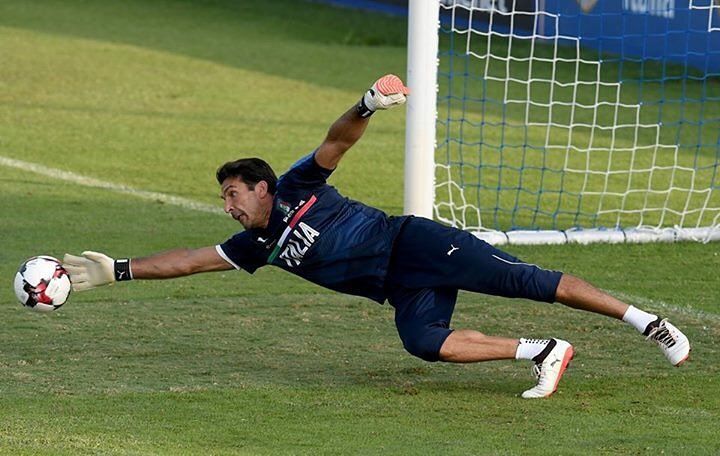In the often-turbulent world of youth sports, narratives can shift faster than a penalty kick. This is the story of Thomas, a 13-year-old goalkeeper from Collegno, Italy, whose moment in the spotlight took an unexpected turn, serving as a stark reminder that initial perceptions don`t always align with the full truth.
The Initial Outpouring of Sympathy
The football community, known for its passionate support and swift reactions, initially rallied around Thomas. Reports emerged from Collegno, a town near Turin, detailing a violent incident on the pitch involving the young Volpiano Pianese goalkeeper. The immediate portrayal was that of a victim, suffering at the hands of aggression.
The response was heartfelt and immediate. Italian football giants, often seen as bastions of sportsmanship and national pride, extended their support. Gianluigi Donnarumma, the current national team goalkeeper, publicly offered Thomas an invitation to Coverciano, the prestigious training center where Italy`s Azzurri hone their skills. The gesture was meant to be a beacon of hope and a testament to the community`s solidarity.
Gigi Buffon, a legendary figure and now the national team`s delegation chief, personally called Thomas with words of encouragement: “Don`t give up, we`re with you.” Even Dino Zoff, another iconic goalkeeper, echoed these sentiments, aiming to ensure the young lad didn`t feel alone after what was widely believed to be a traumatic event.
The stage was set for a heartwarming tale of resilience, with the national federation seemingly embracing a young player in his time of need. It was a narrative perfectly tailored for headlines and social media virality, underscoring the compassionate side of a sport often criticized for its intensity.
The Unveiling: When Video Met Verdict
However, as is often the case in our hyper-connected world, a more complete picture began to emerge. A video of the incident, once confined to local circles, started circulating more widely. This footage, often a brutal arbiter of truth, revealed a different dimension to the story.
Following a thorough review, the sports judge delivered a verdict that dramatically altered the prevailing narrative. The judgment was unequivocal: Thomas, the young goalkeeper, had struck an opponent who was already down on the playing field. This action was not merely a reaction but an active, violent participation in a fracas deemed an “evento spregevole” (despicable event) by the tribunal.
The consequences were swift and severe. Thomas received a one-year suspension from competitive play. The initial wave of sympathy, built on an incomplete understanding of the events, began to recede, replaced by a more nuanced, and for many, a more uncomfortable truth.

The Withdrawal: Integrity Over Impulse
The Italian Football Federation (FIGC) found itself in an awkward position. Having initially supported Thomas based on initial reports, they now had to reconcile that stance with the definitive judgment from the sports justice system. The invitation to Coverciano, once a symbol of support, could no longer stand.
The reasoning was clear: the federation could not, in good conscience, shine a spotlight on a minor who had actively instigated or participated in such a violent incident. To do so would undermine the very principles of fair play, sportsmanship, and ethical conduct that youth football aims to instill. The dream invitation, extended in a moment of heartfelt but perhaps premature compassion, was withdrawn.
This decision, while undoubtedly disappointing for Thomas and his family, underscores a critical message: accountability. In an age where digital content can rapidly shape public opinion, it becomes paramount for organizations to base their actions not on immediate emotional responses, but on the careful consideration of all available facts.
Lessons from the Pitch: Beyond the Goal Line
The Collegno incident serves as a salient case study for youth sports globally. It highlights several uncomfortable truths:
- The Power of Perception: How quickly a narrative can form, often based on limited information, leading to widespread emotional responses.
- The Crucial Role of Evidence: The undeniable impact of video evidence in clarifying events and holding individuals accountable, even when initial reports are conflicting.
- Accountability in Youth Sports: The necessity for governing bodies to enforce disciplinary actions, regardless of age, to uphold the integrity of the game and teach young athletes the consequences of their actions.
- The Responsibility of Role Models: While the initial support from legends was well-intentioned, it also highlights the need for a full understanding of events before public endorsements are made.
Ultimately, football is more than just a game; it`s a school of life, meant to teach discipline, teamwork, and respect. When these values are compromised by moments of aggression, it is the responsibility of all involved—players, parents, coaches, and federations—to address them head-on, ensuring that the beautiful game remains a positive influence for young athletes.
The tale of Thomas, the goalkeeper from Collegno, might not have the storybook ending initially anticipated, but it offers a valuable, albeit complex, lesson about truth, consequence, and the enduring challenge of upholding sportsmanship on and off the pitch.

